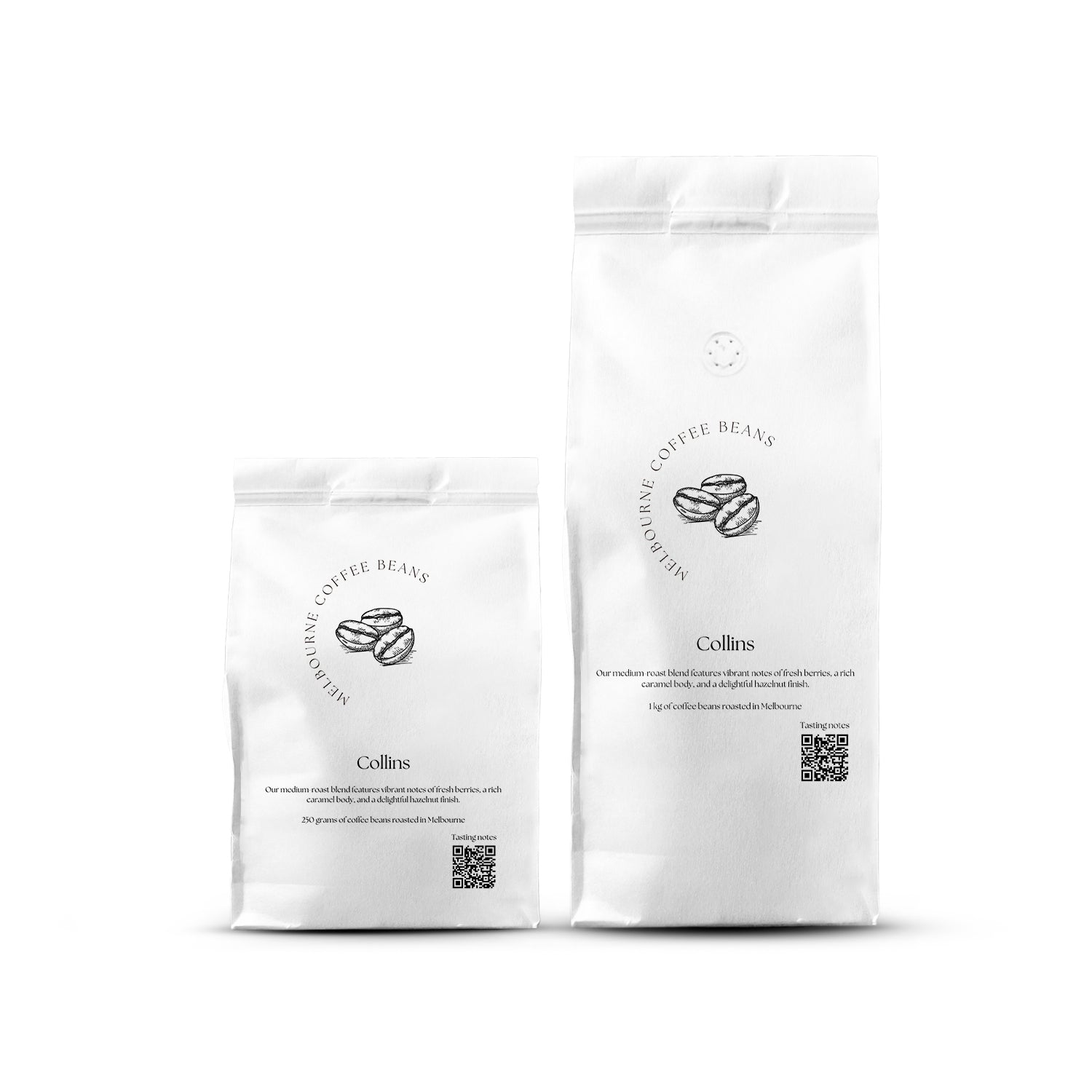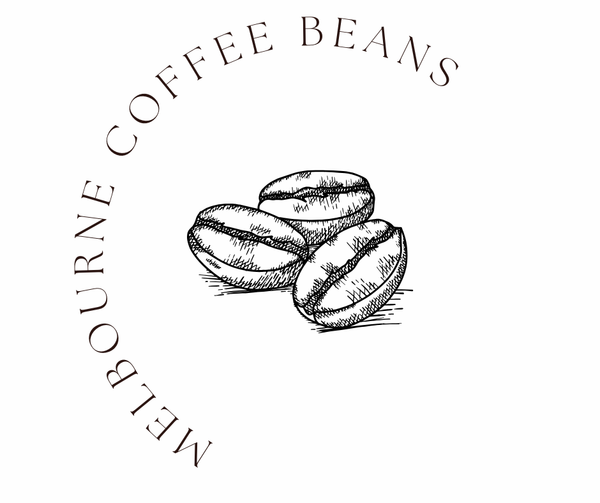Are you a coffee lover and coffee drinker always looking for the next best brew? Or perhaps you’re a café owner seeking to offer your customers a truly exceptional coffee experience? No matter where you fall on the spectrum, understanding the diverse world of coffee beans is essential to crafting that perfect cup.
In this blog post, we’ll delve into four distinctive types of coffee beans that promise to elevate your brew to new heights. From the robust and earthy flavours to the delicate and fruity notes, each type of bean brings its own unique profile to your coffee cup.
Join us as we explore these beans, their origins, and how they can transform your daily coffee ritual into an extraordinary sensory journey. Whether you're a seasoned barista or a home brewer, this guide will help you make an informed choice and take your coffee game to the next level.
What are coffee beans?

Before we dive into the specific types of coffee beans, it’s important to understand what coffee beans actually are. Coffee beans are the seeds of the Coffea plant (Genus plant), a flowering shrub that produces small, cherry-like fruits. Inside of these coffee plant fruits are two seeds, which we know as coffee beans.
These beans are then harvested, processed, roasted, and ground to make the coffee that fuels our mornings and energizes our days. The Coffea plant thrives in tropical climates, with major coffee-producing regions located in Central and South America, Africa, and Asia.
Each region's unique climate, soil, and altitude contribute to the distinct flavors and characteristics of the coffee beans they produce. There are over 125 species of Coffea, but two main types dominate the global coffee market: Arabica (Coffea arabica) and Robusta (Coffea canephora).
Additionally, there are less common varieties, such as Liberica (Coffea liberica) and Excelsa (a variant of Liberica). Each type offers a different taste profile and brewing experience.
What are the 4 common coffee bean types?
Now that you already have an idea about what coffee beans are let's explore the four best types of coffee beans that will elevate your coffee brew.

1. Arabica Coffee Beans
Arabica beans are the darlings of the coffee world, prized for their smooth, complex flavours and aromatic qualities. Although this coffee bean is more susceptible to disease and pests, Arabica beans make up about 60-70% of global coffee production and are often considered the gold standard for high-quality brews.
Originating in the highlands of Ethiopia, these arabica coffee plants are now grown primarily in Latin America, including countries like Colombia and Brazil. These beans are known for their smooth, nuanced flavours and higher acidity, which contribute to their complex and often fruity or floral aroma.
Flavor Profile:
- Sweet, soft taste with notes of sugar, fruit, and berries
- Higher acidity compared to other varieties
- Less caffeine content than Robusta
- Subtle, multilayered flavors
Brewing Method Recommendations:
- Pour- Over
- Drip
- Chemex
- Espresso
- French Press
Why Choose Arabica?
- These coffee beans are suitable for a wide range of brewing methods.
- Due to its popularity, Arabica is often preferred by coffee connoisseurs.

2. Robusta Coffee Beans
Robusta beans are the sturdy workhorses of the coffee world. This coffee bean is predominantly grown in Africa and Indonesia. While it is often overlooked by coffee connoisseurs, these beans offer unique qualities that can significantly enhance certain coffee experiences.
Robusta coffee beans are hardier and more resilient than Arabica, thriving at lower altitudes and resisting pests better. These beans have a stronger, more robust flavour and contain nearly twice the caffeine of Arabica beans.
Flavour Profile:
- Strong, full-bodied taste with woody and earthy notes and a bitter flavour profile
- Often described as having a "burnt" or "rubbery" edge
- Higher caffeine content (nearly double that of Arabica)
- Less acidity than Arabica
Brewing Method Recommendations:
- Espresso
- Often used in instant coffee production
- Blended with Arabica to add depth and crema to espresso
- Works well in cold brew, highlighting its bold flavours without bitterness
Why Choose Robusta:
- These coffee beans are generally cheaper than Arabica, making them suitable for blending and bulk use.
- It has a higher caffeine content and appeals to customers looking for a strong kick.
- These are hardier beans that are less prone to disease and can be grown at lower altitudes.

3. Liberica Coffee Beans
Liberica beans are a rare and distinctive variety, accounting for less than 2% of the world’s coffee consumption. Native to Liberia in West Africa, this Liberica coffee bean is now primarily grown in the Philippines, Malaysia, and Indonesia. Liberica beans are unique in both shape and size, often larger and more irregular than other beans, with a distinct aroma that stands out.
Flavour Profile:
- Woody, smoky, and floral, with a hint of dark chocolate and an underlying sweetness.
- Strong, somewhat polarizing aroma
- Lower acidity compared to Arabica
Brewing Method Recommendations:
- Best brewed using methods that highlight its bold flavours, such as French press or cold brew
- Can be an interesting addition to espresso blends for added complexity
Why Choose Liberica?
- Less common, offering a unique selling point to attract coffee enthusiasts.
- It has a distinct flavor that truly stands out.

4. Excelsa Coffee Beans
Excelsa beans, sometimes classified as a variety of Liberica, offer a complex and intriguing flavour profile that can add depth to coffee blends or stand alone as a unique brewing experience.
These coffee beans are primarily grown in Southeast Asia, particularly in countries like Vietnam and the Philippines. Excelsa are known for their tart, fruity flavor and are often used in blends to add complexity and depth.
Flavour Profile:
- It has a tart, fruity, dark, and sometimes wine-like notes.
- They offer a complex flavour profile that can vary from light and fruity to dark and robust, often adding a new dimension to coffee blends.
Brewing Method Recommendations:
- Works well in blends, adding complexity to the overall flavour profile
- Can be brewed as a single-origin coffee for a unique tasting experience
- Best prepared using methods that showcase its complexity, such as pour-over or AeroPress
- Often used to add interesting notes to medium-dark roast blends
Why Choose Excelsa?
- These coffee beans add depth and unique flavors to your coffee drinks.
- It offers a milder flavour and is perfect for those who want a milder coffee drink.
What are the other varieties of coffee beans?
While Arabica, Robusta, Liberica, and Excelsa are the four main types of coffee beans that you will commonly find in the market, other lesser-known varieties offer unique flavours and characteristics. These beans are often cultivated in specific regions and may not be as widely available, but they are worth exploring for the adventurous coffee lover. Here are a few notable varieties:

1. Typica Coffee Beans
Typica is one of the oldest and most genetically pure coffee varieties, from which many Arabica cultivars have descended. It originated in Yemen and has spread across the world, influencing the coffee industry significantly.
Flavour Profile:
- Sweet, a bit better but well-balanced
- Bright acidity
- Delicate body with fruity and floral notes
Brewing Method Recommendations:
- Pour-over
- Drip coffee
- Chemex
2. Bourbon Coffee Beans
Bourbon is a variety of Arabica known for its exceptional sweetness and complexity. It was first cultivated on the island of Bourbon (now Réunion) and is now grown in Colombia, Rwanda, and Brazil.
Flavour Profile:
- Rich, buttery texture
- Sweet with notes of fruit, caramel, and chocolate
- Bright acidity
Brewing Method Recommendations:
- Espresso
- French Press
- Pour-over
3. Geisha (Gesha)
Geisha coffee beans are another rare and highly prized Arabica variety that originated in Ethiopia but gained fame in Panama. This coffee bean is known for its exceptional quality and distinctive flavour profile, often fetching high prices at auctions.
Flavour Profile:
- Sweet, delicate, and complex flavour
- Floral and jasmine-like aroma
- Bright acidity with citrus and tropical fruit notes
Brewing Method Recommendations:
- Pour-over
- Chemex
- Aeropress
4. Caturra
Caturra is a mutation of Bourbon discovered in Brazil. It is a dwarf variety, making it easier to harvest and manage. These specialty coffee beans are popular in Latin America due to their high yield and good quality.
Flavour Profile:
- Citrusy, sweet with honey and maple notes.
- Medium body with a balanced sweetness
Brewing Method Recommendations:
- Pour-over
- Drip coffee
- Chemex
Conclusion
In conclusion, understanding the different types of coffee beans can significantly elevate your coffee experience, whether you're a home brewer or a café owner. Each type of bean offers a unique flavour profile and brewing potential, allowing you to tailor your coffee to your taste preferences and brewing style.
From the smooth and complex Arabica and Robusta beans to the distinctive and rare Liberica and the intriguing Excelsa, a world of flavors awaits exploring. Each bean's unique characteristics, influenced by its origin, climate, and processing method, can transform your coffee drinks into an extraordinary one.
Additionally, exploring other varieties like Typica, Bourbon, Geisha, and Caturra can further expand your coffee horizons. These beans bring their own unique tastes and aromas, offering new and exciting experiences with each cup.
So, the next time you reach for your coffee, consider experimenting with different beans and brewing methods. By understanding the distinct qualities of each type of coffee bean, you can craft a brew that not only meets but exceeds your expectations, turning your everyday cup into a true delight.
Remember, the key to a great cup of coffee lies in the beans you choose and how you brew them.


